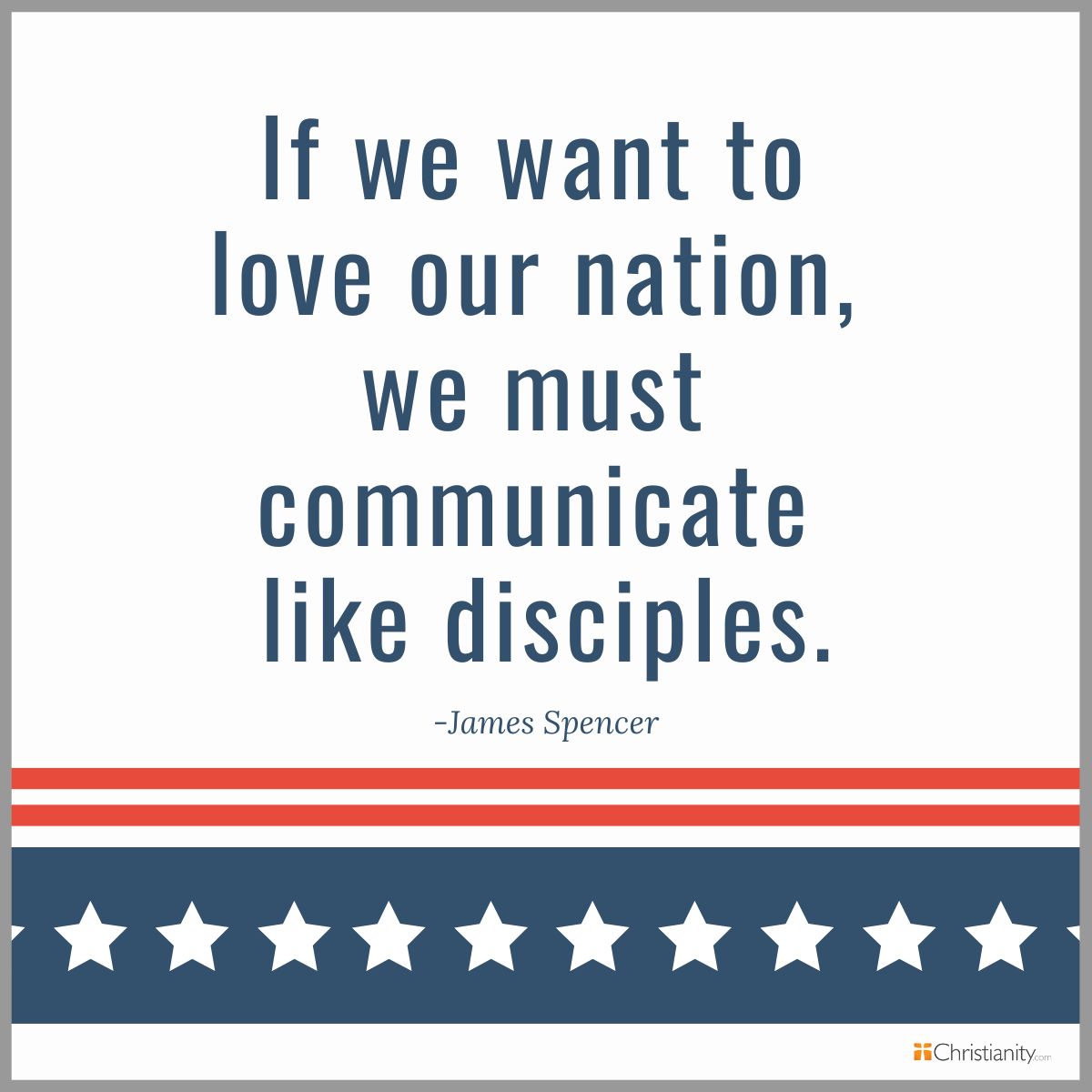
"And you must love the Lord your God with all your heart, all your soul, and all your strength." - Deuteronomy 6:5 NLT
In Deuteronomy 6:5, the people of Israel are called to love the Lord without reserve. Later in Leviticus 19, God calls Israel to imitate his own holiness. They would do this, in part, by loving their neighbors as they love themselves (19:18, 34).
"Do not seek revenge or bear a grudge against a fellow Israelite, but love your neighbor as yourself. I am the Lord." - Leviticus 19:18 NLT
"Treat them like native-born Israelites, and love them as you love yourself. Remember that you were once foreigners living in the land of Egypt. I am the Lord your God." - Leviticus 19:34 NLT
These passages are reiterated in the New Testament when Jesus is asked which of the commandments is the greatest. He responds by saying that loving God with all we are and have is the greatest commandment and the “second is like it: You shall love your neighbor as yourself” (Matt 22:34-40). When we think of love in these scriptures, we should think in terms of an uncompromising loyalty to another. This loyalty involves all we are and have…it is “unreserved.”
"But when the Pharisees heard that he had silenced the Sadducees with his reply, they met together to question him again. One of them, an expert in religious law, tried to trap him with this question: 'Teacher, which is the most important commandment in the law of Moses?'
Jesus replied, 'You must love the Lord your God with all your heart, all your soul, and all your mind.’ This is the first and greatest commandment. A second is equally important: ‘Love your neighbor as yourself.’ The entire law and all the demands of the prophets are based on these two commandments.” - Matthew 22:34-40 NLT

Our unreserved love for God allows us to love our neighbor and, as I’ll suggest below, our nation rightly. When we do not have an uncompromising loyalty to God, we are incapable of loving rightly because we only love rightly on God’s terms. As we imitate Christ, we learn to love what Jesus desires us to love in the way that Jesus desires us to love it.
Photo Credit: SWN Design

What Does Loving Our Nation Mean for Christians?
Where does our nation fit into such a scheme?
1. Love God
First, we need to recognize love for God does not preclude love for other people or things. Instead, our love for God conditions our love for other people and things. In other words, in being unconditionally loyal to God, we refuse to love the world (or our nation) on its terms. However, we also recognize that this refusal doesn’t diminish our love…it enhances it.
2. Love People
Second, we need to consider what we mean when we say we “love our nation.” We can love our nation in the sense that we love the people who make up and live within it. This would be similar to loving our neighbor. To avoid collapsing the two categories, let’s think about loving our nation as our commitment to see our nation (a) fulfill its responsibilities as God’s appointed agent that gestures, however incompletely, toward God’s justice (i.e., loving our nation as governing authorities) and (b) provide a provisional context where individuals can seek and perhaps find God (i..e., loving our nation as a gifted place in which we have the opportunity to bear witness to the Triune God).
While there are surely other ways to think about loving our nation, these two aspects seem sufficiently broad to cover a variety of areas (e.g., economic systems, religious institutions, social and cultural movements, etc.) entangled with our nation. These aspects also remind us that nations are neither perfect nor permanent. Nations come and go. As such, as long as our nation persists, we should do our best to love it (on God’s terms).
Photo Credit: ©Getty Images/LeoPatrizi

1. Reflecting God’s Love through Christian Discipleship
In Serpents and Doves, I suggest, “The ‘common good’ every Christian pursues on behalf of the world is the building up of Christ’s body…Christ’s body is crucial because it offers an alternative to the world’s broken systems.” Take a moment and think about the implications of claiming to represent the Triune God while doing what is right in our own eyes (Judg 17:6). Discipleship trains us to love what God loves on God’s terms. As we learn to love on God’s terms, we become increasingly capable of representing God to the world.
"In those days Israel had no king; all the people did whatever seemed right in their own eyes." - Judges 17:6 NLT
In the Old Testament, God called Israel to be his “kingdom of priests” and a “holy nation” (Exod 19:6). Israel was to keep the law, in part, so that the nations would notice their wisdom (Deut 4:6). The nations would ultimately flow into Israel in praise of God (Isa 2:2). Israel was to reflect God to the world so that those who were lost would recognize that wisdom of fearing the Lord.
The church serves a similar function. Having been incorporated into the “root” (Rom 11:16), the mixed multitude (cf. Exod 12:38) of Jews and non-Jews in Christ who are called on to “put away all malice and deceit and hypocrisy and envy and all slander” (1 Pet 2:1) because they “are a chosen race, a royal priesthood, a holy nation, a people for his [God’s] own possessions” (2:9). This group is to “proclaim the excellencies of him who called you out of darkness into his marvelous light” (2:9).
The Church’s discipleship is not something that isolates the church from the world. Instead, discipleship differentiates the church from the world. Christian discipleship assumes the proclamation of the gospel in word and deed. It assumes that Christians seek to reflect God to the world. If we are going to love our nation on God’s terms, we must learn to do so through discipleship.

Discipleship must be a proactive activity for Christians because nations, even those like the United States, which are deeply influenced by the Bible and Christianity, are not in the business of building up Christ’s body. While some nations are adamantly opposed to Christianity and engage in persecution, the United States is generally content to leave room for Christianity so long as Christian convictions don’t become too disruptive. Regardless of how much room our nation may leave us to be and make disciples of Jesus Christ, discipleship will ultimately create tensions with the state because the state is involved in a sort of discipleship all its own.
Commenting on the formative power of the state, political commentator George Will writes, “Men and women are biological facts. Ladies and gentlemen—citizens—are social artifacts, works of political art. They carry a culture that is sustained by wise laws and traditions of civility. At the end of the day, we are right to judge society by the character of the people it produces. That is why statecraft is, inevitably, soulcraft.” Christian discipleship counters this “soulcraft” by ensuring that God’s people reflect Christ rather than some set of national ideals. Without discipleship, Christians run the risk of becoming ordinary citizens embodying a certain set of values and ideals instead of being the body of Christ.
Photo Credit: ©Getty Images/Zorica Nastasic

2. Speaking God’s Truth in Everyday Conversations
As an extension of discipleship, Christians can love their nation by aligning our speech with reality, particularly the reality of God. We often pick up patterns of speech that aren’t necessarily theologically accurate. For instance, consider the word “luck.” “Luck” is a term that diminishes God by downplaying his active presence in the world and relegating the gifts he provides to the realm of chance. “Luck” is not a term that accurately reflects the reality of the Triune God.
Words matter. They orient us to the world. They also convey our understanding of the world. While Christians can’t control the world’s language, we can control our own.
For instance, we need to be careful not to cause the United States to bear the Lord’s name in vain. This caution is necessary when we develop a right understanding of the command given in Exodus 20:7 and Deuteronomy 5:11. As Carmen Joy Imes explains, “We’ve been misunderstanding the command not to take the Lord’s name in vain. It’s not about policing the way we say God’s name…At Sinai, God chose Israel as his people, and he…placed his name on them to claim them on his own. And so, the command is telling them not to misrepresent him, not to bear his name or carry his name in vain is telling. While many Christians assert that America is a “Christian nation,” there has never been a time in our nation’s history in which our nation has been solely made up of a mixed multitude of Jews and non-Jews united in Jesus Christ. This understanding of “Christian” aligns with the use of “Christian” in scripture (Acts 11:26; 26:28; 1 Pet 4:16). It also makes Christ essential to the meaning of the term. Referring to America as a “Christian nation,” then, does not align with reality. Effectively, when we claim that America is a “Christian nation,” we do damage to God’s reputation by attempting to force it onto an entity that was never chosen by him.

Our speech is not the only way that we communicate. For instance, when we vote, we communicate our support for one candidate over another. While that support may not affirm everything the candidate does or thinks, we don’t get to qualify our decision. Voting is an inherently ambiguous, simplified form of communication. It leaves little room for the nuance theology often requires.
While voting is still an appropriate Christian activity, it isn’t sufficient. We must do more than vote to convey a theological understanding to the world. We must speak prophetically to our elected officials (whether we voted for them or not) and others who are in authority. We have to check their speech, push them beyond political pandering, and call them to remember that they exercise their authority under the Triune God even if they don’t profess faith in him.
Discipled communication is necessary not because Christians feel some need to be “right” but because such communication points to and magnifies the Triune God. It doesn’t express a religious perspective or opinion. Instead, it conveys what those who walk by sight can’t comprehend. It speaks to the reality of God and his ongoing presence in the world. If we want to love our nation, we must communicate like disciples.
Photo Credit: ©Getty Images/Mariia Vitkovska

3. Embracing Our Unique Christian Identity
As a final extension of our discipleship, we can love our nation by being strange in the right ways. What might that look like? As I suggest in Thinking Christian, “We need not resign ourselves to live in a world without hope for imminent change and ultimate transformation. God breaks into our settled world, alerting those with eyes to see and ears to hear of his presence. Our unique view of the world results in ‘foolish’ practices like prayer, fasting, Sabbath, and hospitality. Displaying the wisdom of God by engaging in wise practices…practices that appear foolish to the world…makes Christians strange.” We become strange in the right ways as we adopt and embody patterns of living that acknowledge the Triune God.
There is a reason that James describes “religion that is pure and undefiled in the eyes of the father” as involving care for the vulnerable (“orphans and widows”) and remaining apart (“unstained”) by the world (Jam 1:27). First, our faith does not stop with a love of God but extends out to a love of neighbor. As we “visit” the vulnerable, we imitate Christ by using what we have to serve others rather than serving ourselves (Phil 2:6). As we continually meet with, share in, and lament the difficulties of others, we demonstrate the love of Christ and look ahead to the time when God will eliminate suffering and death (Rev 21:4).
"Though he was God, he did not think of equality with God as something to cling to." - Philippians 2:6 NLT
Second, in remaining “unstained” by the world, we provide a clear witness to the Lord Jesus Christ. We will never be perfect, but as we hold our shape in a world that seeks to mold us into something other than the image of Christ, we showcase God’s work in our lives. When we adopt the world’s practices and perspectives, we will ultimately encourage false hope.
Part of loving our nation requires that we allow our nation to be what it is supposed to be and do what it is supposed to do with the authority God has given it. When we give our nation more authority than God has given it, we ask it to carry a burden it is unequipped to carry. Surely, our nation may pick up that weight on its own, but Christians who love their nation should allow the nation to exist within its natural limitations.
Loving our nation well can involve a range of activities, but all of those activities must be grounded in an uncompromising loyalty to and love for God. Our commitment to God requires discipleship. We must learn to imitate Christ by living according to the patterns of life he exhibited. Discipleship is crucial if the church and its members are to learn to love our nation on God’s terms rather than our own.
Photo Credit: ©Getty Images/LeoPatrizi
Click here to read Part 1: 3 Meaningful Actions Christians Can Take for Our Nation
Click here to read Part 2: How Can We Distinguish between Church and State?
Click here to read Part 3: Thinking Like a Christian This Election Season
Click here to read Part 4: Is Christian Political Participation a Sacred Duty or a Civil Right?
Click here to read Part 5: What Role Should Law Play in Christian Political Participation?
Views expressed in this article do not necessarily reflect Salem Web Network.

Originally published Wednesday, 03 July 2024.
